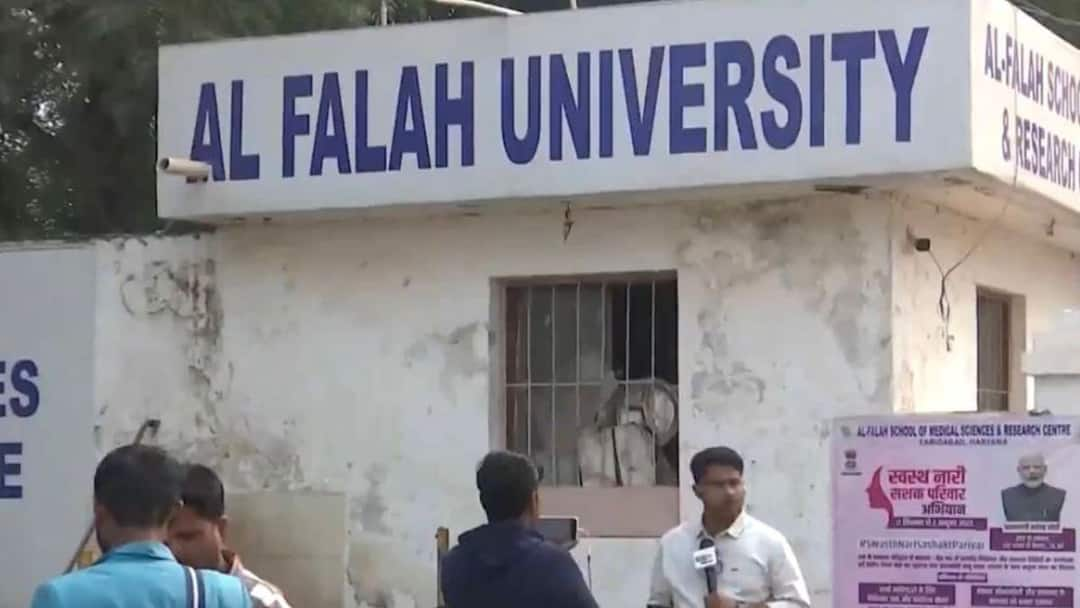Russia’s invasion of Ukraine sparked a rethink in Germany’s security policy: Since then, Berlin has been trying to support Ukraine while also bolstering its own defence capabilities. “The war in Ukraine has shown that NATO has insufficient production. Since the start of the war, European countries in particular have been trying to increase their manufacturing capacity,” Turkish defence analyst Caglar Kurc said.To meet this demand, Germany is on the lookout for new partners ― and sees one in NATO ally Turkey. defence was a key topic when Friedrich Merz met with President Recep Tayyip Erdogan at the end of October. Erdogan said that Turkey would continue to cooperate closely with Germany.”We would be delighted if our two defence industries could cooperate with each other,” Foreign Minister Johann Wadephul said during a visit to Ankara weeks earlier. “You could almost ask: Who else would we work with on this?”
‘The world suddenly seems small’
Germany’s network shrinks in difficult geopolitical times, according to a high-ranking official at the German Armed Forces Procurement Office in Koblenz, speaking on the condition of anonymity. “It is clear to all of us that NATO must assume a completely different role in the geopolitical arena. In light of how our North Atlantic relations are developing and how the situation in Ukraine or even the situation with China is developing, the world suddenly seems relatively small,” he told DW.Turkey is “at least a strong Nato partner that is not in a bad position,” the official said, adding that the two sides can learn from each other. After the US, Turkey has the second-largest army in NATO.
Turkey’s booming sector: defence
In 2022, four Turkish companies — Baykar, Aselsan, TAI and Roketsan — made it onto the SIPRI list of the 100 largest arms companies for the first time. The reputation of the Turkish defence industry is also improving in Germany.”Turkey’s new booming sector,” read a the headline on the German news-website tagesschau.de.Turkey could become both a cooperation partner and a market for the German and European arms industry, according to Benedikt Meng, a German defence expert with many years of experience in the German arms industry: “As Turkey is also one of Nato’s largest partners and a key player in the Middle East and the Caucasus, deeper defence and industrial policy relations are definitely advantageous in terms of common security interests.”Cooperation agreements are already in place. Starting in 2027, the Turkish company Repkon will produce 155 mm artillery ammunition in Germany, the standard ammunition for Nato howitzers, which are also used in Ukraine.The Turkish media referred to this as a “technology transfer.” Kurc saw this as an exaggeration, but said it had symbolic value. “Turkey’s production capacity, its willingness to cooperate, and the quality of its companies are also an important resource to develop European defence,” he said. “It would be a mistake for Europe to leave Turkey out of the picture.”There were years of political tension, for example, over the deployment of German tanks in northern Syria, but now the relationship is changing. In 2017, Germany moved its Tornado jets and a tanker aircraft from Incirlik to Jordan.Today, Turkey is again considered a partner, while criticism of human rights violations is being watered down.”Of course, Turkey must initiate a process of democratization. But let’s be honest: what options do we have at the end of the day? We’re not going to say to the US, ‘We’re no longer going to buy your weapons systems because you’re deporting people,'” said the Bundeswehr official.He added that efforts are being made to maintain Nato ties to Turkey, which is increasingly ruled by an authoritarian government and also maintains good relations with China and Russia.
Turkish drones for Europe?
Of late, Turkey has established itself on the international stage, particularly with its powerful and affordable drones. They played a decisive role in the Nagorno-Karabakh war and are also being used in Ukraine. The EU countries Poland and Romania have already bought them. In June, Baykar and the Italian defence contractor Leonardo founded a joint venture.Germany “should definitely take a look at the Turkish drones,” said the Bundeswehr official. “Turkey is quite advanced in this area. In terms of market analysis and cooperation opportunities, I definitely see Turkey as a player that would be well worth talking to in the near future.” “In the field of drones and other flying systems, Turkey has built up interesting expertise that could be incorporated into joint projects,” Meng said. He added that German technology, such as German sensors, is already being used in TB2 drones.Kurc emphasized how international partners stand to benefit: “Turkey’s increasing production capacities also strengthen Nato. One example is armed drones: While Europe is still implementing the Eurodrone project, Turkey already has two comparable systems. If Europe makes use of these capabilities, it will strengthen its defence.”Meanwhile, Turkey is seeking deeper involvement in Europe’s armament strategy. In October, the EU Commission confirmed that it had received an application from Turkey to participate in the “Security Action for Europe” (SAFE) program, which aims to strengthen the defence industry with loans totaling up to €150 billion. The application is currently being reviewed, the Commission said. Go to Source



